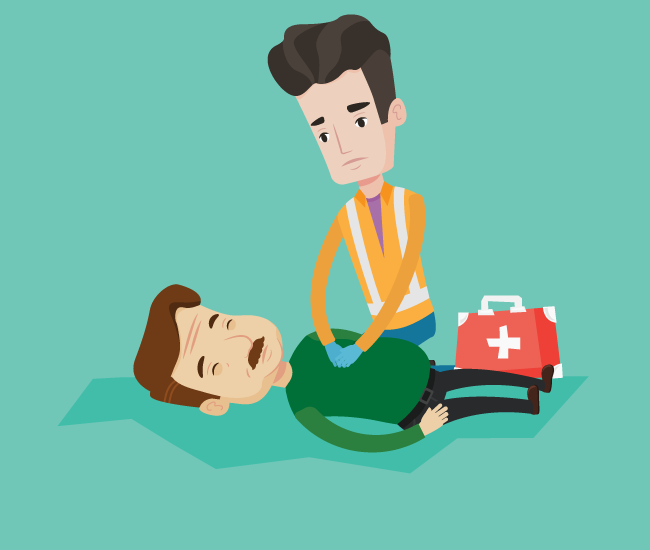Have you ever heard what hands-only CPR is?
Or how effective it is?
Well, you’re in luck! Because today is the day I am going to explain hands-only CPR.
Hands-only CPR, which is also known as compression-only CPR, is probably better termed, “compression-only resuscitation” because it does not involve rescue breaths.
(CPR stands for Cardiopulmonary Resuscitation, which includes two rescue breaths for every 100 compressions per minute.)
How compression-only resuscitation works
If you see someone collapse, you respond by tapping the person and asking if he or she is alright. “Are you okay? Can you hear me? etc.”
If there’s no response and the person does not appear to be moving or breathing, immediately activate the EMS team by calling 911 and go right into compressions.
Place the palm of your hand directly on the center of the chest, lock your fingers together, lock your elbows to keep your arms straight, press straight down on the chest doing at least 100 compressions-per-minute, going at least two inches down with each compression.
Continue these hard and fast compressions over and over again until help arrives or someone with equal or better training can take over.
For more information on how to do hands-only CPR, watch this short video.
Please note: it is so easy to combine rescue breaths with the compressions by simply tilting the head back, lifting the chin, pinching the nose, opening the mouth and giving two rescue breaths.
This will help to circulate the airflow more effectively than solely doing compressions. And until we have more science backing the claim that compression-only resuscitation is equally as good as traditional CPR (which includes the rescue breathing), it’s best to get the full training.
It is going to be the best way to give your loved one or someone else’s loved one the best chance of survival.
And don’t forget to sign up for our weekly refresher emails, which include review videos to keep you up-to-date on this life-saving skill we call CPR.
Hands-only CPR Video
